



Welcome to Annie's Homestead
Take Your Homesteading to the next level!
Tired of grocery store mystery meat & wilting lettuce? Let’s grow real food, raise happy chickens, and earn money—no acres or fear required.
Does this sound familiar?
You’re over the mystery meat and wilted lettuce life.
You’re tired of not knowing what’s in your food—or where it came from. You're craving a real connection to your meals (and maybe a tomato that actually tastes like a tomato).You live in the city but your soul belongs in the dirt.
You’ve got dreams of chickens, raised beds, and canning jars—even if you're still stuck in a tiny apartment with a windowsill garden and a compost bin that scares your roommate.You’re ready to stop treating your homestead like a hobby.
You're putting in the work—growing food, raising animals, doing it all—and now you're wondering, “Wait... could this actually make money?”
If these frustrations resonate with you, you're not alone.
Let’s be real—lots of people want to live closer to the land...
But most of the info out there is either sugar-coated nonsense or so overwhelming it makes you want to throw your phone in the compost.
You're not alone—and you don't have to figure it all out yourself.
That's where Annie's Homestead comes in.

It's time to take control of your food, your lifestyle, and your future by embarking on a homesteading journey like no other.

Here, you'll find courses tailored to individuals just like you, providing you with a homestead roadmap

It's okay if you're living in a city right now! You can homestead exactly where you are.

Learning skills of fermentation, baking, bush craft, gardening and more, can help you become a homesteader even if you live in the heart of the city.

Turn your homestead into a cash cow by capitalizing on your talents so you can leave your 9-5.

Are you a home baker or gardener? Or neither? Our Homestead courses will help you discover your passion to turn into an income.
chicken coop automations
Want to streamline your chores?
From automatic door openers to refillable waterers, these innovations streamline maintenance tasks, ensuring your flock stays happy and healthy with minimal effort on your part.
Whether you're a seasoned keeper or just starting out, these time-saving solutions are a game-changer for any chicken enthusiast.
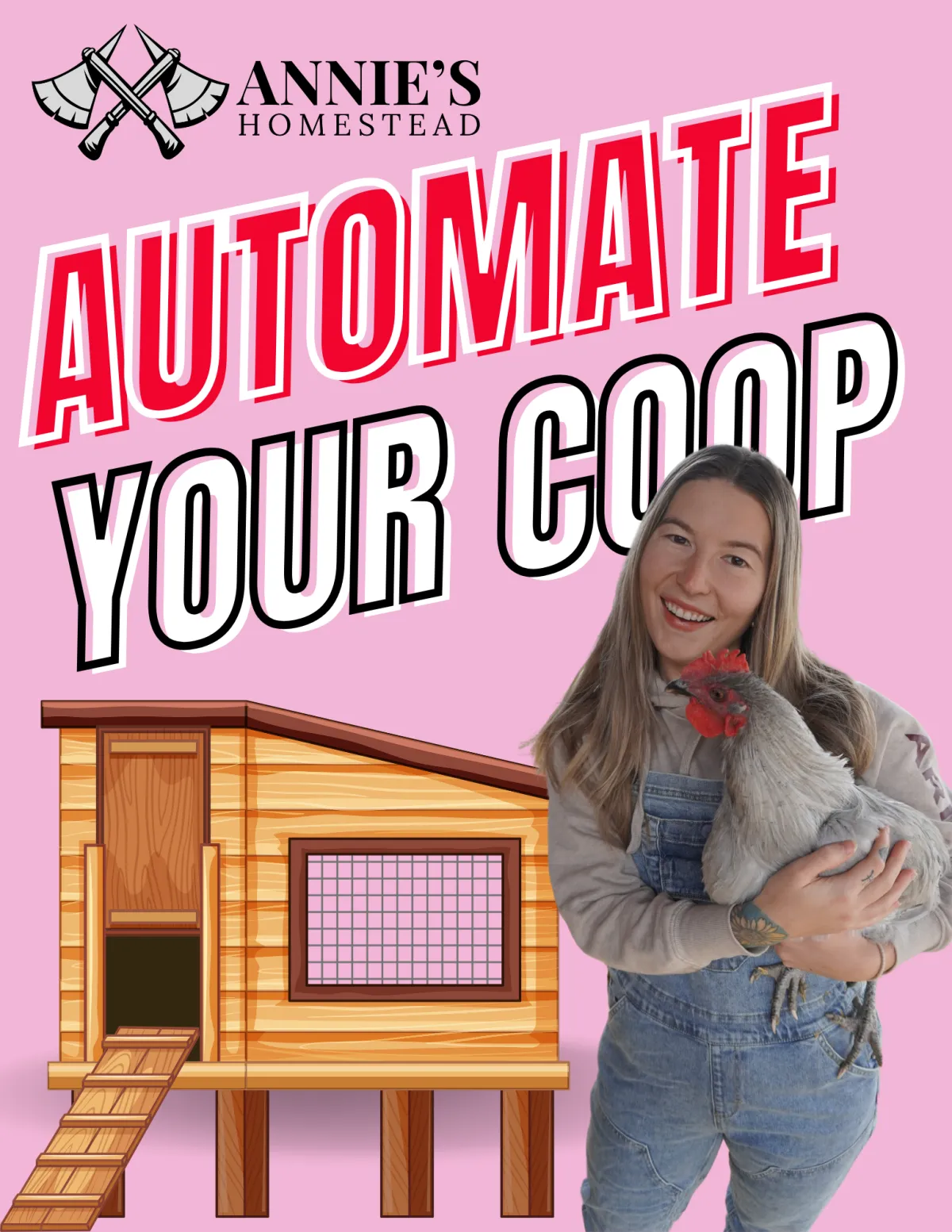
Hey There,
I'm Annie
I'm here to help you homestead with ease
You want to raise clean food. You want chickens that thrive, a garden that actually produces, and maybe even a little off-grid dream of your own.
But every time you Google something, it turns into a black hole of conflicting advice, overpriced courses, and blog posts that never really get to the point.
I get it. I was there too.
Now I live off-grid with a flock of mixed birds, an indoor grow room, and a greenhouse—because I’d rather avoid whatever’s falling from those ch3mtra!ls in the sky. I created Annie’s Homestead to make real-deal, straight-to-the-point content that helps you feel confident, not confused.
No gatekeeping. Just honest, tested resources to help you grow food, raise birds, and get out of the system—one chicken (or coop automation) at a time.
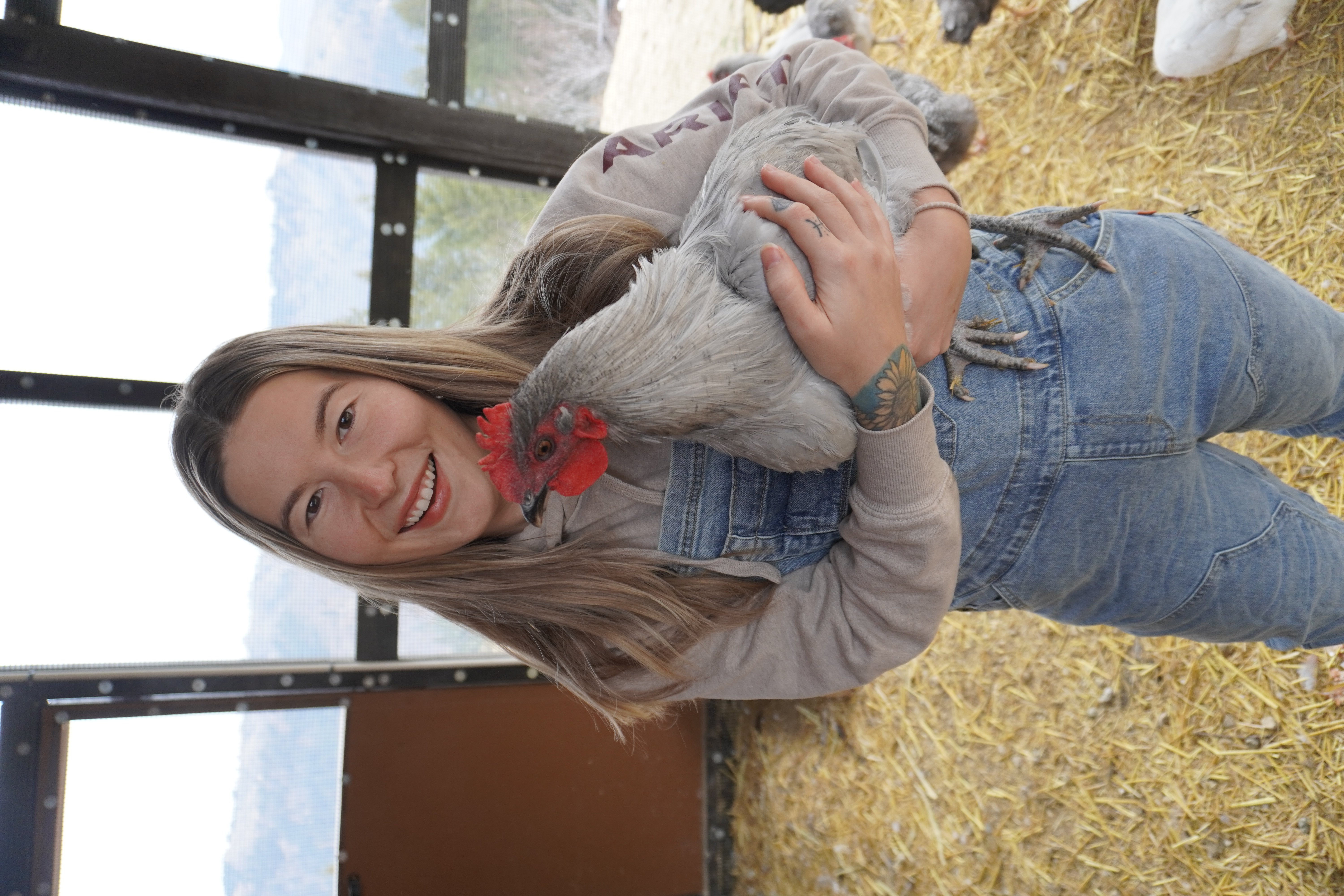
Top Resources

Streamline your chore list with our chicken coop automation list
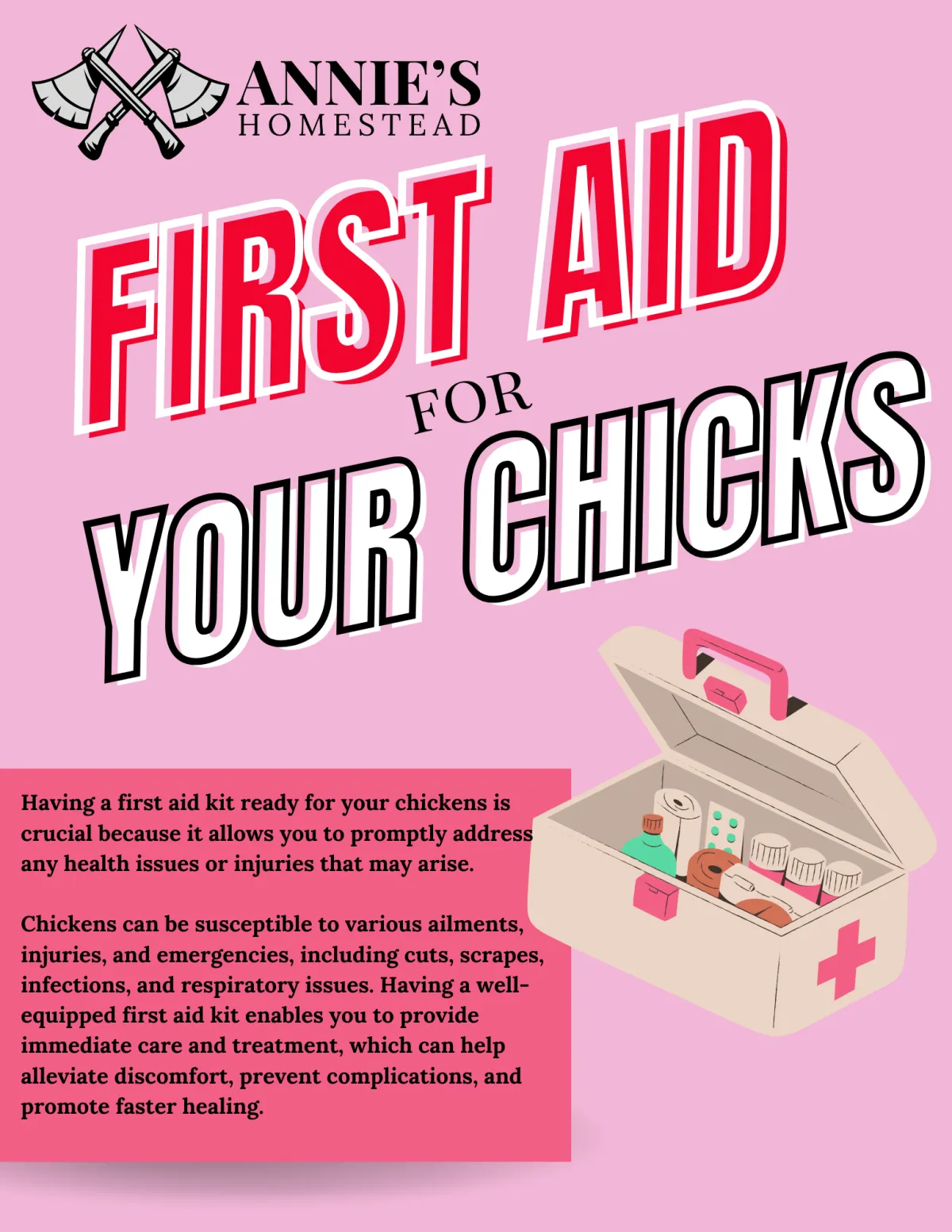
Prepare For Emergencies with our Chicken First Aid Kit
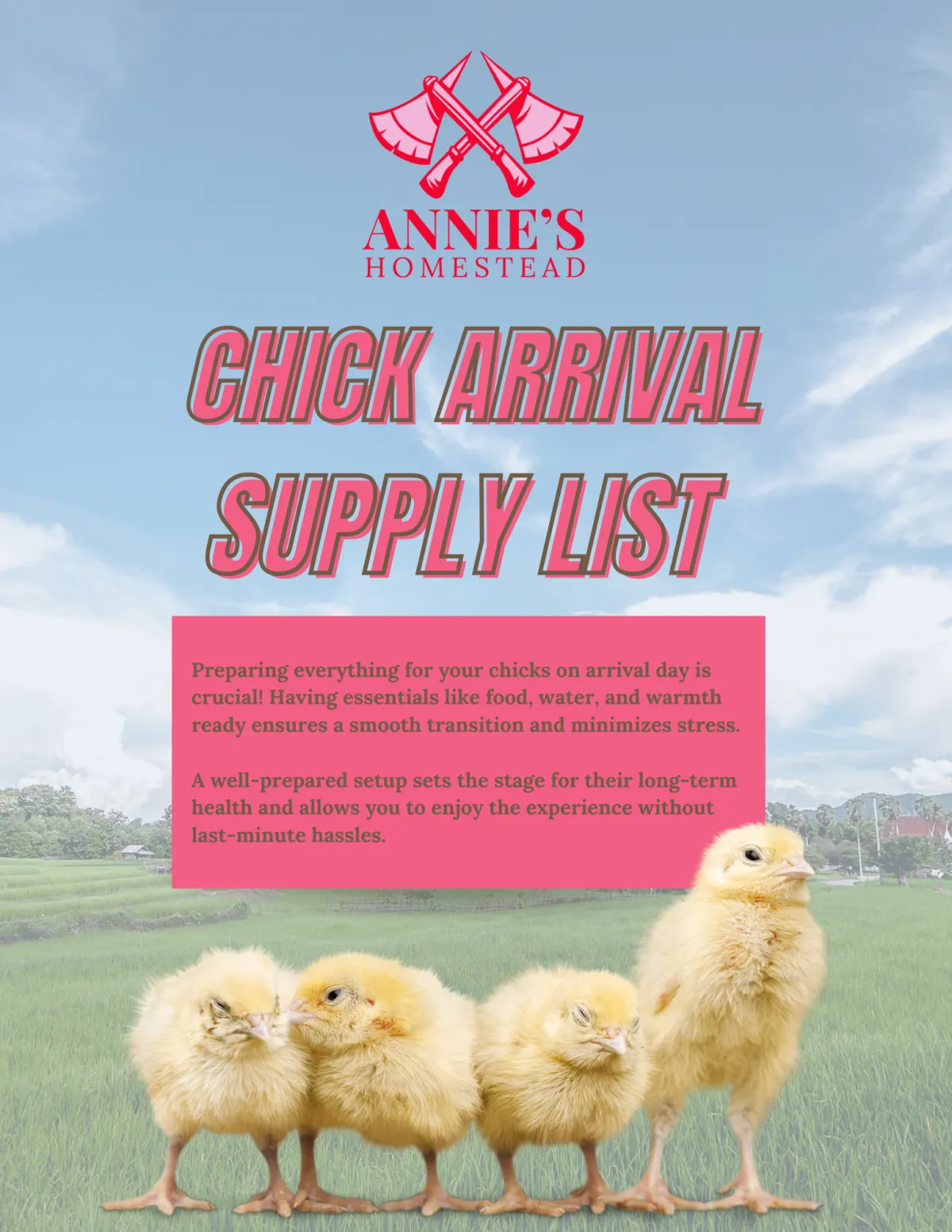
Prepare For Your New Chicks with our Favorite Essentials
Stay Updated
And join the newsletter
Be one of the firsts to know anything new and stay up to date with all the happenings on the homestead!
(I won't spam you ever - PROMISE!)
Read The Blog
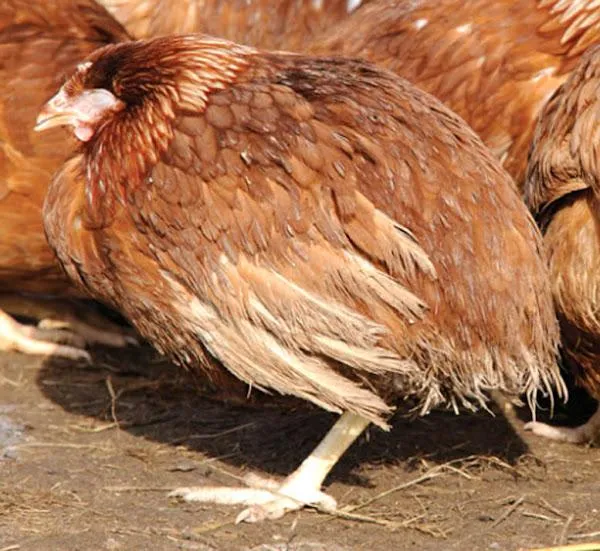
Signs Your Chicken Is Sick (And What to Do!)
Signs Your Chicken Is Sick (And What to Do!)
Keeping your flock happy and healthy is every chicken keeper’s goal. But let’s face it—chickens are masters at hiding illness until it's too late. Learning how to recognize the early warning signs of sickness can mean the difference between a quick recovery and losing a bird. This is especially important to us because we live about an hour away from services and need to be prepared to handle just about anything that comes our way.
In this guide, we’ll cover:
-The most common signs of illness in chickens
-What to do if you suspect a chicken is sick
-How to build a chicken first aid kit (Get your FREE checklist!)
Let’s dive in!
Signs Your Chicken Might Be Sick
Chickens may not be able to tell us when something’s wrong, but their behavior and appearance can give us important clues. If you spend time and watch your flock everyday, you'll notice changes in their behavior quickly.
Keep an eye out for these warning signs:
1. Lethargy & Weakness
Your normally active chicken is suddenly sluggish, sitting in one spot, or not interested in food.
What to Do: Separate the sick bird from the flock, keep it warm, and observe for additional symptoms.
2. Changes in Eating or Drinking
Not eating or drinking normally? Chickens that stop eating for extended periods could be battling illness.
What to Do: Offer electrolytes and probiotics in water and check for crop issues (impacted or sour crop). You may need to put liquids in a syringe and give it to your bird if they are still noticeably not drinking water.
3. Unusual Droppings
Watery, discolored, or bloody droppings could signal parasites, infections, or digestive issues.
What to Do: Check for signs of coccidiosis, worms, or bacterial infections. Have medicated feed or natural dewormers on hand. Apple cider vinegar or red pepper flakes are usually two natural dewormers you'll already have on hand. Add ACV to the water and the red pepper flakes can be sprinkled on top of their food.
4. Respiratory Issues
Wheezing, coughing, sneezing, or a gunky nose? Respiratory infections spread fast!
What to Do: Quarantine the chicken immediately and provide clean, dust-free bedding. Check for signs of Mycoplasma, Infectious Bronchitis, or Fowl Cholera.
5. Swollen Eyes, Face, or Comb
Puffy eyes, crusty nostrils, or a pale comb can indicate infection, dehydration, or heat stress.
What to Do: Provide electrolytes, keep the bird hydrated, and check for mites or injuries.
6. Limping or Injuries
A chicken that’s limping, favoring one leg, or unable to stand might have an injury, bumblefoot, or a vitamin deficiency.
What to Do: Check the footpad for swelling (bumblefoot), examine for wounds, and supplement with vitamins like B12 and niacin if needed.
What to Do If Your Chicken Is Sick
When you spot signs of illness:
1️⃣ Isolate the Sick Chicken – Prevent the spread of disease and monitor symptoms. We have a few extra dog crates that do the trick if we have 1 or multiple sick chickens at a time - everyone gets their own space.
2️⃣ Check for Injuries or External Parasites – Mites, lice, or wounds can worsen illness.
3️⃣ Support With Electrolytes & Probiotics – Boost hydration and gut health as quickly as you can.
4️⃣ Use Natural or Medicated Treatments – Depending on the illness, antibiotics or herbal remedies may be necessary.
5️⃣ Keep Detailed Notes – Track symptoms and response to treatment. Take notes, pictures, and document as much as you can. Is your chicken eating/drinking? Are they low energy? Are they hunched over? Are they showing signs of improvement?
🐔 Want a simple guide for building a chicken first aid kit to help you battle illnesses? Grab our FREE Chicken First Aid Checklist here.
Be Prepared: Build a Chicken First Aid Kit
One of the best things you can do as a chicken keeper is to have a first aid kit ready BEFORE you need it. Our FREE Chicken First Aid Checklist will help you stock up on the must-haves, including:
✅ Electrolytes & probiotics
✅ Wound spray & antiseptic
✅ Vet wrap & gauze
Download it now so you’re always prepared!
Learn More With Hatch to Harvest
Knowing how to care for sick chickens is just one part of raising a thriving flock. If you want to feel confident in:
-Raising healthy chickens from chicks to adults
-Preventing disease naturally
-Knowing exactly what to do when illness strikes
Then our Hatch to Harvest Course is for you!
Enroll today and take control of your flock’s health!
Chickens are resilient, but early detection is KEY when it comes to illness. By knowing what signs to look for and keeping a well-stocked first aid kit, you can keep your flock happy, healthy, and thriving all year long.
Got a sick chicken question? Drop it in the comments!

It's time to take the first step towards your homesteading journey.
Don't let uncertainty hold you back any longer.
Our homesteading courses offer a comprehensive roadmap to self-sufficiency, guiding you step-by-step through the process of creating your own thriving homestead, no matter where you live.
Enroll in our course today and take the first step towards a brighter, more empowered future!
Annie's Homestead is not affiliated by Facebook™ in any way. Facebook™ is a registered trademark of Facebook™ Inc
Branding and Website by RoyalT Studio

